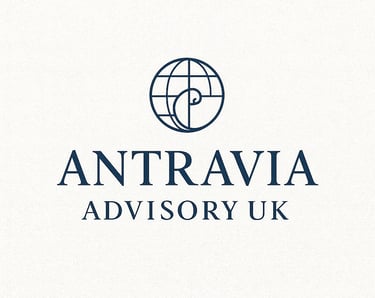Can UK Businesses Recover EU VAT? | Antravia Guide
UK companies can still reclaim EU VAT after Brexit, but claims now follow the Thirteenth Directive. Learn eligibility rules, deadlines, reciprocity and what costs are recoverable.
TRAVEL FINANCE AND ACCOUNTING BLOG - U.K. FOCUS
11/15/20253 min read


Can UK Businesses Recover EU VAT? A Practical Guide for Post-Brexit Claims
Since leaving the European Union, UK businesses no longer have access to the EU’s electronic refund portal that previously allowed simple VAT recovery on expenses across the EU. Recovery is still possible, but the process now follows the Thirteenth Directive route used by all non-EU companies. This means UK claimants must meet stricter eligibility conditions, follow each Member State’s domestic rules and submit claims directly to individual tax authorities rather than through a single EU system.
UK Businesses Are Treated as Non-EU Claimants
For EU VAT refunds, the United Kingdom is now treated exactly the same as the United States, Switzerland or any other non-EU jurisdiction. UK companies must therefore use the EU Thirteenth Directive (86/560/EEC).
Under this regime, a UK business can recover EU VAT if:
• it is not established in the Member State where the VAT was incurred
• it is not VAT registered and not required to register in that Member State
• it has not made taxable supplies there (apart from limited exceptions such as reverse charge services)
• it provides all required documentation, including original invoices that meet EU invoice rules
The key test is that the UK business must have no taxable presence in the country where it is claiming VAT.
The Reciprocity Rule now applies
Before Brexit, UK businesses did not face reciprocity tests, because the UK was part of the EU VAT system. After Brexit, several Member States now examine whether the UK offers comparable refund rights to their businesses.
In practice, this means:
• some EU countries allow UK claims with no restrictions
• some apply reciprocity strictly
• a few may refuse UK claims depending on how they interpret reciprocity in their domestic rules
Because there is no central EU list, each Member State must be checked individually before submitting a claim.
Deadlines are earlier and Claims must be filed separately
Thirteenth Directive claims are normally filed by 30 June of the year following the year of expenditure.
The UK business must submit separate claims to each Member State where VAT was incurred. There is no longer an EU portal.
Typical pattern:
• quarterly claims allowed in some countries, often with minimum thresholds
• annual claims permitted with lower thresholds
• original invoices often required
• claims must be filed in the local language in many cases
• authorities may take months to review and frequently request clarification
Missing a deadline usually means losing the refund entirely.
What EU VAT can a UK Business recover?
Recovery rules vary between Member States, but in general:
Usually recoverable
• hotel accommodation for staff on business trips
• exhibition and trade fair fees
• business-related professional services
• transport and road tolls
• business travel expenses incurred for company purposes
Often restricted or blocked
• client entertainment
• restaurant meals depending on the country
• passenger vehicles
• goods purchased for resale within the EU if they create a registration obligation
Each country applies its own interpretation, so eligibility must be confirmed per jurisdiction.
What ff the UK Business must Register for VAT in an EU Country?
If a UK company has activities that trigger local VAT registration, such as:
• holding stock in an EU warehouse
• importing goods into the EU
• running events or training with a place of supply in the EU
• making domestic supplies that do not fall under reverse charge
then it cannot use the Thirteenth Directive.
It must instead recover input VAT via its local VAT return, and the refund mechanism will be different.
Summary
UK businesses can still recover EU VAT after Brexit. The routes are more complex, the deadlines are strict and reciprocity now matters. For many UK companies, significant amounts of VAT are still recoverable, particularly on travel, events and supplier services across Europe. The key is to confirm eligibility early, identify any registration triggers, check the reciprocity position in each Member State and prepare documentation that meets EU standards.


Disclaimer
This article is provided for general information purposes only and does not constitute accounting, tax, or legal advice. Regulations, tax rules, and reporting requirements may change, and their application can vary depending on your business structure and circumstances. Readers should seek professional guidance from a qualified accountant or adviser before making any financial, tax, or compliance decisions. Antravia UK accepts no responsibility for any loss arising from reliance on the information contained herein.
Antravia Advisory UK
Where Travel Meets Smart Finance
Email:
Contact us:
© 2025. All rights reserved. | Disclaimer | Privacy Policy | Terms of Use | Accessibility Statement
© 2025 Part of the Antravia Group.
Antravia.com | Antravia.co.uk | Antravia.ae |
Finance.travel | Tax.travel | Consultancy.travel | VAT.travel | VAT.claims |
USSales.tax | EuroVAT.tax | UKVAT.tax |
contact@antravia.com
Antravia Ltd
71-75 Shelton Street
Covent Garden, London
WC2H 9JQ
United Kingdom
